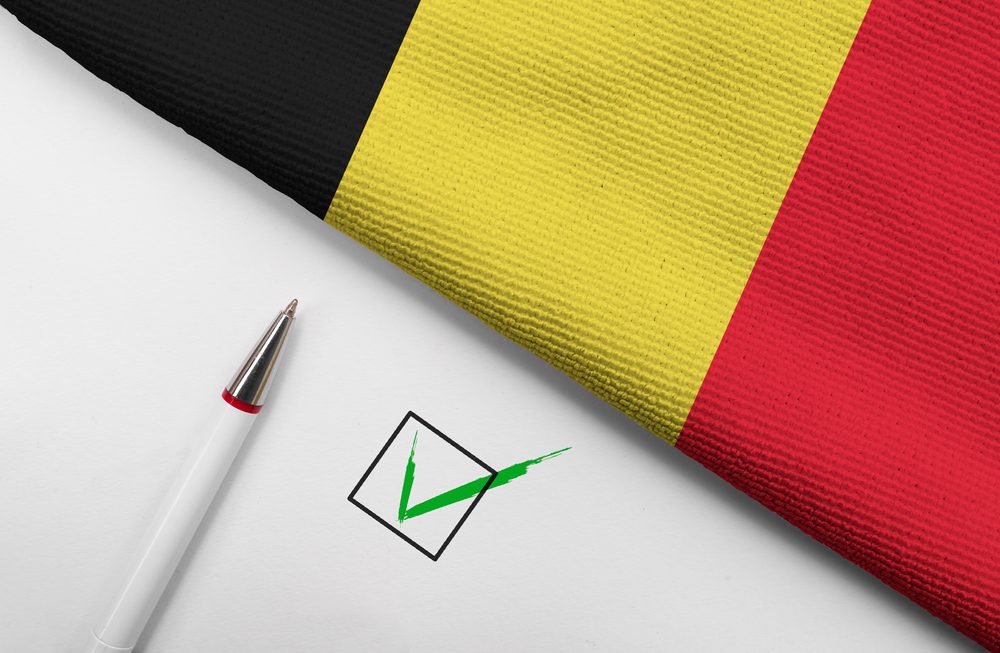
Flemish party Vlaams Belang would turn out to be the largest party in Belgium, winning 25.5% of the vote, if elections were to be held right now. That is the result of an Ipsos poll commissioned by Het Laatste Nieuws, VTM, RTL, and Le Soir.
For Vlaams Belang, this marks a 3.9% increase over the previous poll, conducted last September, and a 7% gain compared with the May 2019 election result. At that time, the Flemish independence party was able to persuade just under 19% of voters.
Pollsters suspect the fatal stabbing which claimed a policeman’s life in Brussels a few weeks ago as well as last weekend’s soccer riots involving Moroccan migrants may have played a role—the poll was taken between November 21st and 29th.
The center-right N-VA party, a proponent of a confederalist Belgium, came in second with 22%, more than 3 percentage points below the 2019 election result.
In its press release, Vlaams Belang, while of course elated, did not view the poll results as an occasion for a victory lap just yet. Taking heart from the fact that, together with N-VA, the party would have a majority, party chairman Tom Van Grieken said he knows that “a poll is not an election, so we keep our feet on the ground. However, we have to make sure that we become the largest party in the election so that we can take the initiative in the formation of the government. Only then can there be a more Flemish and right-wing policy,” he added.
Through Belgium’s cordon sanitaire, erected around Vlaams Belang over its ‘extremism’ for decades, other parties are presently committed to excluding the party from any coalition government.
As for the question of which politician those polled feel best represented by, Vlaams Belang is also faring well. On that front, Van Grieken comes third, after Chairman Conner Rousseau (from socialist ‘Vooruit’), and Chairman Bart De Wever (N-VA).
Belgian Prime Minister Alexander De Croo (Open Vld), who leads the current Vivaldi coalition government, does not even make the top three. He in fact came in fourth.
Rounding out the list for Flanders are N-VA minister Zuhal Demir, N-VA MP Theo Francken, Vooruit Deputy Prime Minister Frank Vandenbroucke, Flemish Prime Minister Jan Jambon, Education Minister Ben Weyts (both N-VA), and Open Vld Deputy Prime Minister Vincent Van Quickenborne.
Of all Flemish parties currently in the Belgian federal government, only Vooruit is improving on its 2019 performance. They clock in at 16.1%, an increase of more than 5 percentage points. The result remains slightly lower than the September poll, however, when the socialists were still polling at 16.8%.
Besides N-VA and Vlaams Belang, Vooruit is the only Flemish party that still manages to cross the 10% threshold. The Christian Democrat CD&V sinks further to 9.6%, while Open Vld lost almost 2 percentage points compared to the previous poll, ending at a disappointing 9.3%. Groen continues to dwell just below 9%, while the far-left PVDA loses some ground compared to the previous poll and stands at 7.4%.
Noting these establishment parties’ underwhelming performances, Van Grieken concluded that Vlaams Belang is “the only credible alternative to Vivaldi. We are the only party that stands up for more purchasing power and safe neighborhoods.”
The most popular French-speaking politician in Flanders is PS (Parti Socialiste) Chairman Paul Magnette, claiming 15th place. MR leader Georges-Louis Bouchez, who makes frequent media appearances there, follows closely behind, at 17th.
Meanwhile, in largely French-speaking Wallonia, the PS is still the most popular party, with 23.7%. The MR polls at 20.4%, not budging much from its 2019 result.
The PVDA is the third largest party with 17.9%, noticeably better than 2019’s 13.8% but half a percentage point below the September poll. Ecolo loses some ground but remains the fourth largest party with 13.1%. Smaller parties Les Engagés and Défi remain around 9 and 5%.
The most popular politicians in Wallonia, after PVDA leader Raoul Hedebouw and De Croo (who share first place), are Sophie Wilmès (MR), Paul Magnette (PS), and Walloon Prime Minister Elio Di Rupo (PS).
And finally, in the Brussels-Capital Region also, the PS is the largest party, followed by the MR. PTB-PVDA trumps Ecolo and comes third. The largest Flemish party in Brussels is N-VA, with 2.8%, followed by Vlaams Belang (2.5%).
Despite the losses suffered by CD&V, Open Vld, Ecolo, and Groen, the Vivaldi government would however retain 80 seats in the federal parliament based on the poll.
Today, the seven parties together have 87 seats, while 76 seats are needed for a majority.
In 2024, both Flanders and Brussels residents go to the ballot box, where they will vote on how the European, federal, and Flemish (or Brussels-Capital) parliaments should be constituted.
